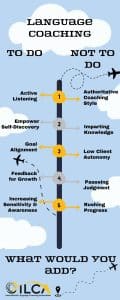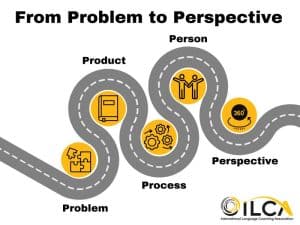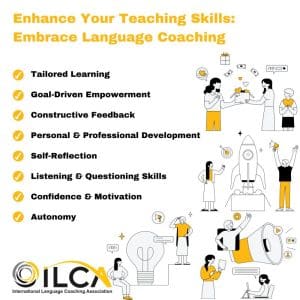By André Hedlund
“We need to separate the wheat from the chaff.”
This relates to so many things on so many levels that I believe we must bear it in mind when we’re making a decision about others, particularly what they do and their motivations.
That made me reflect on what I’d like to call binary thinking. For many people, increasingly more so in today’s world, we can divide things into positive and negative, good and bad, valid and nonsense. I’d like to think that for most things there’s actually a spectrum and nothing is really as great or as awful as we might think.
One example is what has become of the term coaching and how it is viewed by many professionals in society. Back in 2015 when I started paying attention to what language teaching professionals were doing, I felt compelled to call myself a coach because I had started creating teacher development courses and it seemed like a trend I wanted to be part of. Then, quite quickly, I realized two things: first that I was not a coach per se; and secondly that the profession in Brazil (and in many parts of the world, I found out later) was sort of frowned upon.
Then it hit me. I didn’t want to be associated with the idea of coaching nor did I want to become a certified one because my thing was teaching and there’s a difference. In the meantime, I was bombarded by new and quick fixes for losing weight, making more money, finding the love of my life (which I have already) and even learning an additional language. All of that reinforced the idea that coaching was something rather negative. People like Tony Robbins, ideas like quantum leap and the law of attraction made me skeptical of this whole movement.
I think I came around in 2017 when I was working for National Geographic Learning as a consultant and picked up Carol Dweck’s book on the globally popular concept of Growth Mindset. It was not so much the idea of developing a growth mindset that made me reflect on this preconceived idea I had. It was the fact that she had studied successful people, among CEOs and sports coaches. I immediately remembered Bernardinho, a Brazilian Volleyball coach who had achieved so much, including six medals (2 gold, 2 silver, 2 bronze) in the Olympic Games with both the men’s and the women’s teams. His experience had me thinking that coaching could certainly lead to excellent results, at least in sports.

Pic source: Pixabay.com
What about other types of coaching? I kept an open mind and met many professionals in the area in those following years, particularly language coaches. That was when I realized that I had been thinking in a binary way. I came to terms with the idea that just like in any profession, we have wheat and we have chaff. I met lots of people on the chaff side of things. People who made bold unsubstantiated claims about how we could easily become proficient in a language in a few weeks or months. But I also met professionals on the wheat side of things. These were people who had studied what they promoted and were honest with their clients about expectations.
I became more interested in coaching in 2019 when I attended several conferences in Europe. I realized that those on the wheat side of things were doing something many schools were failing to address effectively in Brazil. They were helping adults with a difficult schedule to set and stick to long-term goals and become more metacognitive and self-efficacious learners. Most of these professionals had a well-defined niche: they almost always worked with individual students who were business people and had had a negative experience in regular English language schools.
I can’t say for sure the percentage of wheat and chaff in the mix, but I can tell you a couple of things that I learned about effective language coaching:
- These professionals have studied methodology and language teaching (most of them have been language teachers and learners)
- They do not necessarily compete against teachers as the clientele differs on many levels
- They are certified or working their way to get certified
- They use strategies and techniques that are evidence-based and do not make impossible promises
- They put a lot of emphasis on motivation
- The are optimistic but also down to earth
I think coaching gets into trouble when it starts pretending to be psychology, psychiatry or when it claims it has discovered a new and amazing method that will “unlock” your learning potential. As a person who holds an MSc in Psychology of Education and a neuroscience enthusiast, I myself do my best to make a point that the things I talk about are well researched and that I’m not terribly oversimplifying them. It’s not always easy and I’m sure I have failed sometimes. But I expect good language coaches to study hard and learn from their own mistakes like any of us. I also expect them to acknowledge when their clients have a problem that requires therapy or even medical intervention and refer them to the adequate professionals.

Pic source: Pixabay.com
Think of a dyslexic student in class. Even though there are clues and classic symptoms, I’m not able to diagnose this student. I need to refer them to a specialist. I also don’t think I can use strategies I learned from a quick course that makes bold claims of an innovative formula and that I will “fix” this student’s “problem”. On the other hand, I know that there’s a vast body of knowledge that can help me cater to this student’s needs and I’ll be better able to help them with their specific learning challenge. Imagine now that I need to change a few habits to become a healthier person. I know what I have to do in terms of dieting and exercising but I lack the motivation to reach my goal as I have failed many times before. I could certainly benefit from a personal trainer and a dietitian to help me outline my goal, stick to it and accomplish what I need.
I can honestly say from experience and studies that most of the professionals who offer any of these quick fixes are probably not telling you the whole story and may be in it for the money only. What I have learned is that the things that work for us to change our habits and behaviors require long-term commitment, self-awareness, and lots and lots of effort. Things like self-determination (see Ryan & Deci), self-efficacy (see Bandura), metacognition (see Flavell), and growth mindset (see Dweck), which are all well researched, do make a difference when we want to learn. They probably do not make a difference as quickly as we’d like to think since there are no magical solutions and the roots of the difficulty might be deep.
I do hope that any professional working with education and language learning should be aware of the learning cosmos complexity and understand which aspects will impact their student’s or client’s outcomes. I also think that any person seeking to learn a language has the right to do so in any way they want. I’d just tell them to be careful and look for both qualified teachers or language coaches who are aware of what learning a language entails and how long it will normally take.
In short, I can say that the wheat of coaching, particularly language coaching, consists of professionals who help their clients become more autonomous and self-directed, who probably design their meetings around their rather specific learning needs and make use of different resources, who focus most of their work on adult learners who have struggled to learn an additional language in mainstream/regular school settings and who base their practice on ethical and solid grounds. There is definitely some overlapping with private teachers, I’ll give you that. We can discuss that in detail in a future blog.
I’d like to go back to the idea of binary thinking. I see clearly now that coaches exist on both sides of the spectrum of good quality professionals, just like anyone else. However, I still don’t think I am a coach even though my job as a mentor holds some similarities. I think coaches have trained to become coaches and have studied to do coaching, which was not my case. My suggestion to all of us, professionals dealing with language learning, is quite simple: let us endorse people with the proper credentials and be skeptical of ideas that find no support in the scientific community or in the opinion of experienced professionals.
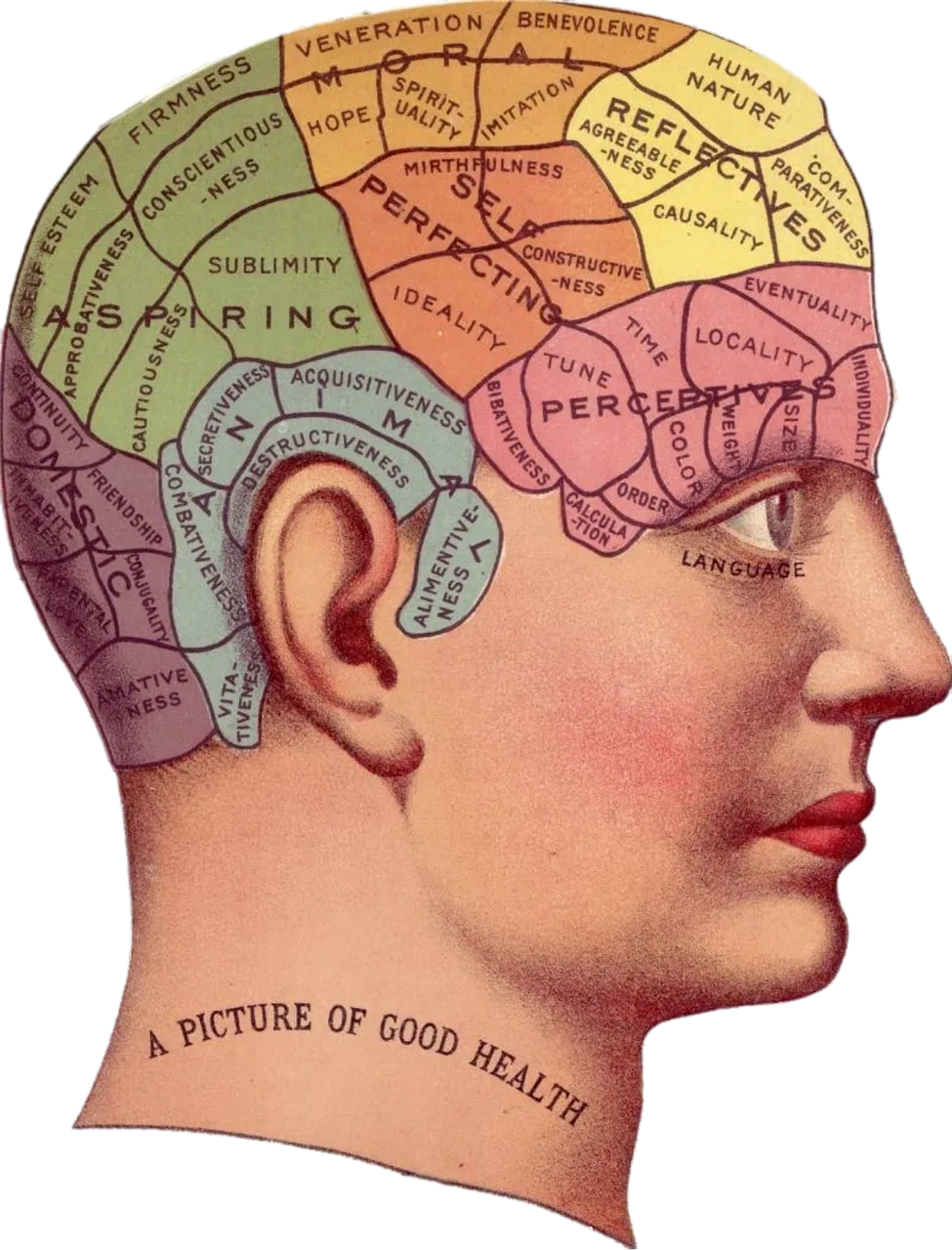
Pic source: Pixabay.com
I can tell you right away that we can’t really reprogram people’s DNA or use quantum mechanics to make our minds vibrate in the right frequency to achieve our goals or easily change our mindset and suddenly solve a problem we’ve been struggling with for years. These claims belong with the chaff side of coaching and do no good to anybody except the people who profit from selling them. Nevertheless, if you find yourself a good language coach, and believe me when I say they do exist, you might find yourself on the way to becoming a successful language learner. If you find yourself a good teacher and stick to the course, I’m positive you can also get there. I’ve seen it with my own eyes a million times. It will depend on what you’re looking for and what works best for you.
It won’t come as easily as you think, though, and that’s OK. The hard challenges are certainly the ones worth overcoming. Now if you’ll excuse me, I need to talk to my dietitian because I’m optimistic she’ll help me achieve my goal this year.
About the author:
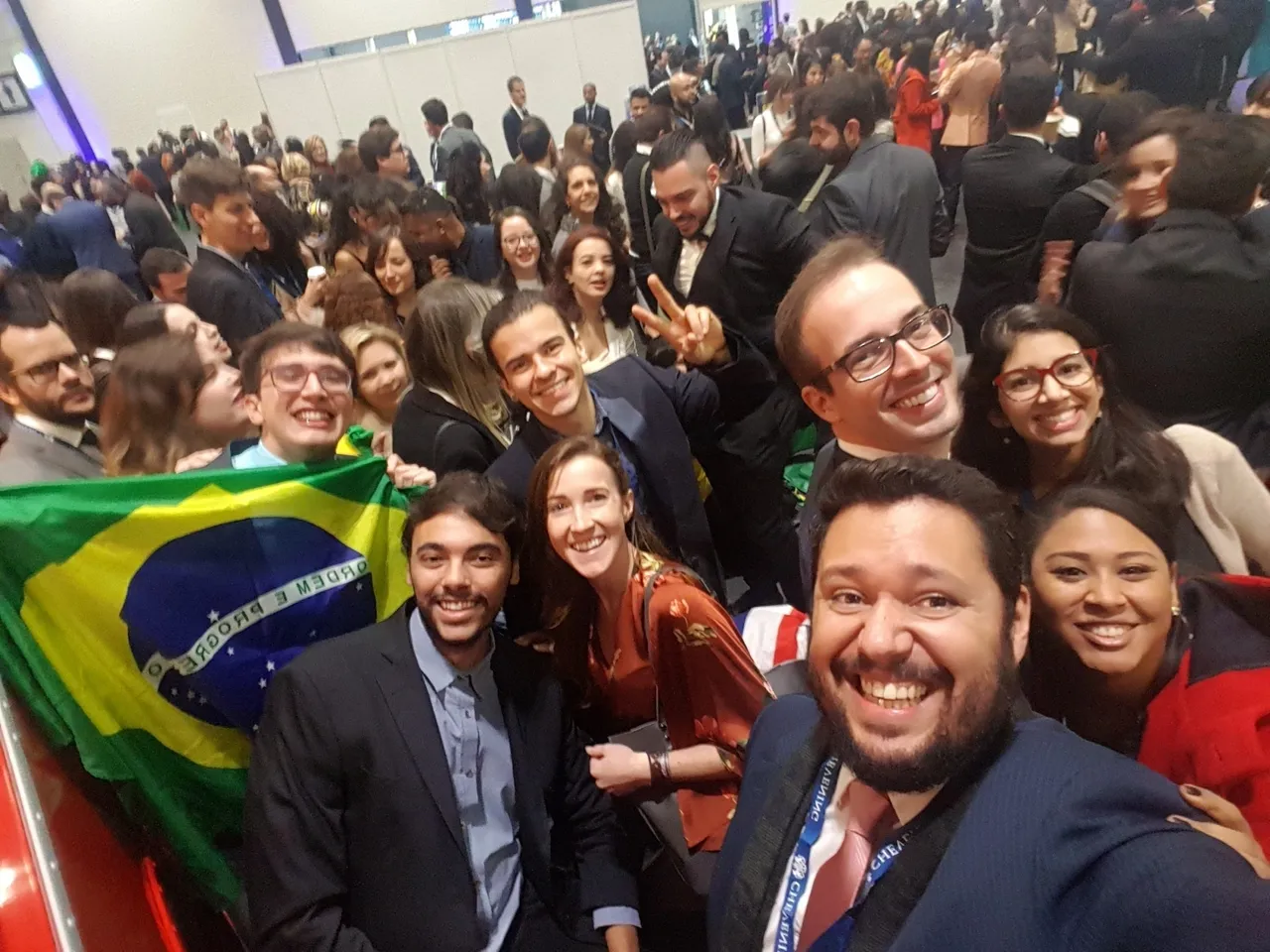
André Hedlund is an ILCA advisory board member and is the creative force behind his blog edcrocks.com, which discusses education, methodology, and neuroscience/psychology-related topics. He offers courses, workshops, and lectures in Brazil and abroad. With Educational Development Courses (#edcrocks), André uses social media and online platforms to offer professional development for teachers and education professionals.
Andre can be found here:
contact@edcrocks.com



